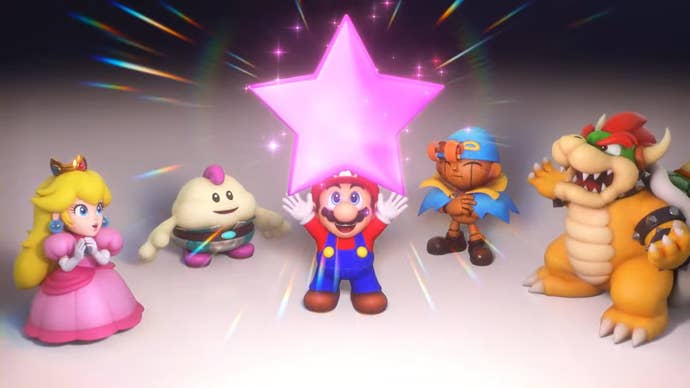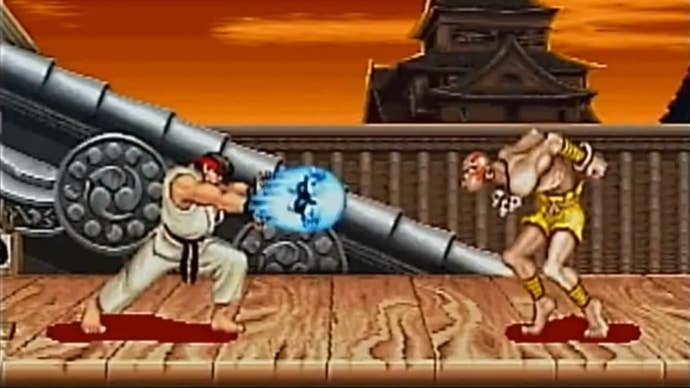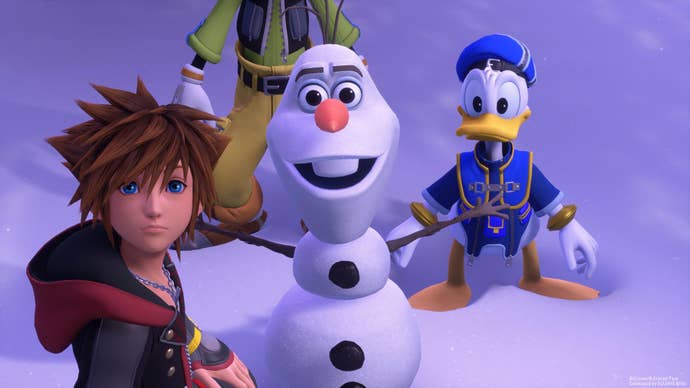Yuku Samura is the latest recipient of the Mashayat Baphata Fellowship Award, given to those who have made an extraordinary contribution to the medium.
Samura has worked as a game music composer for more than 35 years, starting with Street Fighter 2 and Cape work with the choice of Finals 2 before going to Square Enxes, where he was the company’s most famous RPG: Super Mario RPG, the Legend of the Legend of the Series.
He left the Square Enxes in 2002, but has continued to work in Freelance by scoring a score for the Mario & Logie Series and the Final Fantasy 15, as well as the Kingdom Heart Games for which they were particularly loved.
Before this year’s BAFTA Games Awards, I talked about his career, the evolution of game music, and especially why the RPG was pulled from Samura.
I have read that after the music college, your family and teachers were worried about going to the sports industry. Since then you have clearly found a great success, do you believe you have made the right choice? Is your family accepting your success?
It was not a very high level of trouble, they were not really afraid of it. They just didn’t know what the sports industry was, so they were not really sure what kind of industry I was entering. I think, in that sense, they were probably scared. But I think they are definitely close to it now. He has clearly seen that I am now doing concerts with game music, and there are many fans who are really enjoying the music made. So I think they accept it and understand what it is now.
Do you think the reputation of working in sports has changed and now it is more positive?
I think the awareness of the sports industry is more than ever. My family, they see, and they always say, ‘Yes, come! Keep trying more! ‘And they are supporting me in what I’m doing now, because they know what it is. Certainly the sports industry, the fact that now there are young people who want to make music, and they want to make game music especially, the fact is that we are seeing how famous the industry is now.
How do you think composing for video games during your career has changed and developed? What has the effect of developing new technology?
In terms of the evolution of gaming music, there were probably two really big stages where things were changed and ready. First, we (start) the Nintendo Entertainment System when you had very limited sound resources that you could use in the game, all the sound effects that were merely resetting together. And when it turned into a super -Nintendo era, the capabilities of the internal sound generation became so high and you also got the ability to model the previously recorded music, but it was something you couldn’t do before.
The next major change was after a couple of generations, when you really had the ability to stream music completely, recorded as regular music beyond the game, and then put whatever you want in the game. These were the two important points that changed, of course, what I can make and technically what I can express in my music.
Now what kind of challenges do you face that you didn’t do before?
I think it’s probably the number of people who are now involved in making music for sports. When we get an arcistral recording, for example, it will probably be 50 people, sometimes more than 50. You’ve got a really big team of people who have to manage and manage a convincing work. I think in the past, as long as I worked hard and I did this work then you can make something. But now, with many additional people involved in the recording, it is managing them and collecting them all on the same page. I think it’s definitely difficult.

The final fantasy composer Nobo Amatsu has talked about time commitment to compose the full score, and why he is now unable to do so. How does this commitment look like for you?
I do not remember exactly what Mr. Amatasu said, so I can’t specifically comment on his words, but definitely I understand the feelings there. There is definitely a lot of work to make the whole sound track for a single game. If this is just the creation of music tracks, just composing work, I think it’s clearly a plenty of work, but this is still something that is possible. Where additional work comes out of it: management of other musicians, for example, organizing archetypes recording, etc. And I think there is probably the art of the delegation. So saying, ‘Well, this is a musician, and I will really rely on this section, so I will leave it to him’. Or to manage the orchestra, I will leave someone to manage it. But of course, from my own point of view, I think that if people come to me and ask me to make the whole sound track for another game, this is still something I will be very ready.
Attract you to compose music for RPG? What did it allow you to get what you can’t with other genders?
I recently been working on some more action styling games – I’m doing a lot for Monster Hunter, they need a lot of archetypes tracks so I’m working on them. But personally, I really like classic music, this is one of my favorite style of music and I always wanted to make classic style music for sports, and even the piano style composition. With the Street Fighter 2 and this type of action games in the old days, you don’t really get the possibility of using such styling music. They did not really fit the way to the action game in those days. So I think it was probably one thing that allowed it to move to the RPG.
The other thing, of course, is music that really stimulates emotions. Feelings of sadness and sincerity, and to express it through music. This is something that really works in the scenes of cut scenes and dramatic story, but perhaps the old days of action games did not have so many opportunities to (write for it). I think this is probably the biggest change. He allowed me to do what I always wanted to do with the game music.

How would you describe your musical style? I know it’s hard to answer! I think you are most famous for the use of chords and musical color, how important are they for you?
As you say, this is a very difficult question to answer. I think when I first started making music for sports, I really wanted to write MABE lyrics. I think I really. It joined it. So I got the idea in my head that I was going to become a composer that was really focused on the lyrics for sports and wrote beautiful lyrics. But when I started working on game music, I soon realized that there was no part of music that is more important than anyone else. They always say that the three basic elements are chord, harmony and rhythm. But I soon realized that none of them was more important than others. You have to balance them. So if I had to say, my style is to achieve the right balance between all these elements and to make sure they all work together.
How does your structure look like? Where do you look for an inspiration?
I don’t have a special thing that I always do first, the way it can go, it has a lot of changes. Maybe I’m listening to something and I get there, or I’m playing with something, playing music myself, and something comes out, I think ‘oh yes, it’s good, we’ll use it’. But in the sense where I always start, I really want something that is similar to such music that they have asked to make from me. So I start with the briefing, and really consider it. I see what are the scenes for the music (will be used) in the game. I really dig deep into the documents. Sometimes a text describes that they give me, saying that we are looking for such music. And then I will think about it for a long time, I will take action, try to follow what will fit there. But this is really different.
Do you have any special musical effects?
I would say that I was easily affected by other music, when I was listening to music in my spare time. I am sure it is consciously prepared and slowly affect all the tasks I make without thinking about it. But in terms of being familiar with other musicians and their actions, I am actually a little careful to go like this, because if I am listening to a specific person in which they make up with a specific song or music type, for example, I really get absorbed and join it, and then I will try to make my music, and then I will just try to make my music. So I stay away from specific people I am watching or aware of the effects. But by listening to music in my daily life, I think that is definitely a huge part of influence.

You are known for composing the Kingdom Heart Games scores, which obviously mix Disney music and final imagination. What was the inspiration from such famous scores, but also to balance in your own way?
Kingdom hearts show that you have the original Disney work and their leading musical style and themes. Obviously you don’t want to keep it too far away and lose it completely and turn it into an unidentified thing, otherwise it will disappoint the fans of these original tasks. However, it is also a trap, because on the other hand, if you only re -reproduce something that is different but still looks basically like the same thing that is just a little work, it is not really good, and it is not what people are looking for. This balance, as you say, is a very important factor – it is trying to add a bit of its taste, its color, it, and works it again in something new and interesting. The procedure I use to me start with a very much research period so that I can get the idea in my head and get a good image. I will start watching the original movies, maybe what these films are about to get a picture in my head after listening to the original movie sound track repeatedly, and in fact, it is formed within me. And once again, I do the same with final music. I used to play a lot of games, so I would definitely listen to them and let them build in my head. I also listen to modern music. This is the step of making and understanding and then consciously that all together gets in my head, in my view, and then I can actually start work to create in that direction.
How did you make sure that your own musical sound did not disappear in the balance of Disney and final?
When people have ordered a music for me, they especially come to me to ask me to make music for my game. And I think some aspects of it are that they have done this because they think it is a kind of music that can only really be created, or they want my personal contact to a certain extent. In this sense, I am not afraid. I do not try and refrain from putting my own taste, my spin on the things there. But it has a balance. I’ll take it to the place where I think it’s a good place. This is a good balance, but I don’t definitely refrain from trying to put myself in music anymore.
